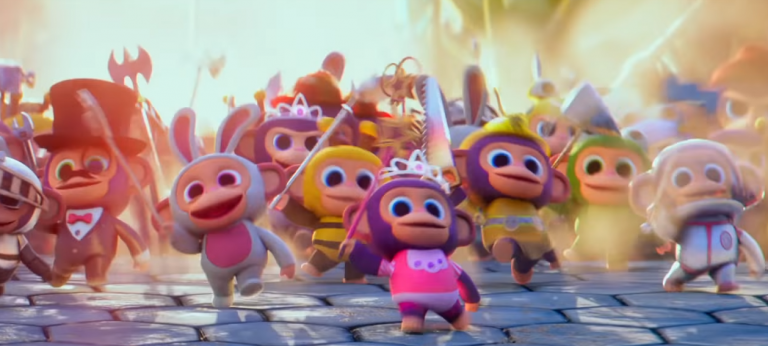
When June’s mom gets sick, Wonderland loses its wonder for June. She packs up all the detailed models she and her mother made of Wonderland’s rides. She destroys the blueprints. And in so doing, she stops being a child—full of all that wonder and hope that childhood brings—and becomes a world-class worrier.
So when she stumbles upon Wonderland in real life, the place is much changed from the Wonderland that she and her mother made. The place is a mess. Most of the rides are broken. Millions of stuffed Chimpanzees—originally meant to be souvenirs—attack the park regularly, tearing it up and tossing it into a swirling purple cloud the park’s weary animal mascots call “the darkness.”

June’s creation isn’t perfect. She brings her own baggage what she makes—her worry, her anxiety, her sadness, her loss. And so it is with our creations, too. Even as creation is something of a sacred reminder of God’s own creative impulses, we can’t help but bring in our own faults and anxieties to the party. Our experiences make us who we are, and they leak into what we create.
In the movie, June works to “save” her creation, but it’s not always so easy. So what are we to do?
Be honest. As much as we’re able, be honest. Because just as our creations are dim reflections of our Creator, they’re reflections of who we are—both who God made us to be and what the world and our own experiences have made us.
When you’re talking about more classic acts of artistic creation—painting, writing, music making—creation most obviously becomes confession. Maybe not explicitly so, but in our “art” we talk about not only how we wish the world was, but how we see it to be … and how we see ourselves in that world.
But art isn’t confined to just artists. We all create. We create relationship. We raise kids. We foster friendships. Each interaction we have is its own mini-story, its own thumbnail portrait.
June’s creation reflected herself—the best and worst parts of her. And as she wrestled with her creation in a way she never had before, she wrestled with her own doubts and demons. We can, and should, do the same.
God didn’t need to create to become more perfect. But I think, in giving us this creative spark, this “image” of Him, God gave us the ability to grow. Through the sacred mimicry of creation, we’re given tools to better see ourselves and improve upon what we find. To slowly, sometimes painfully, climb closer to the people that God always wanted us to be.













